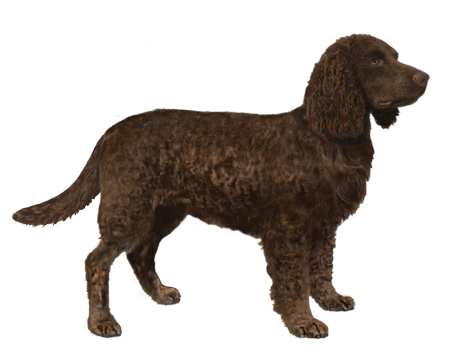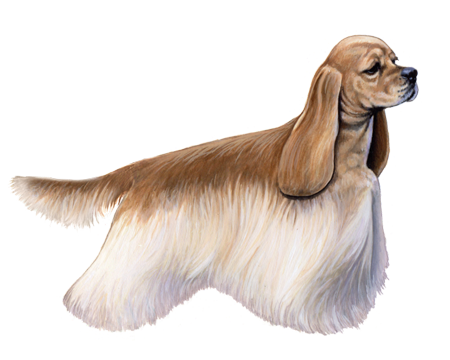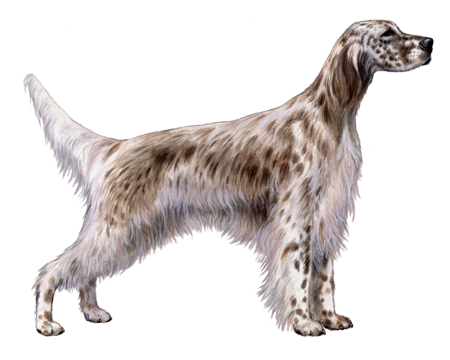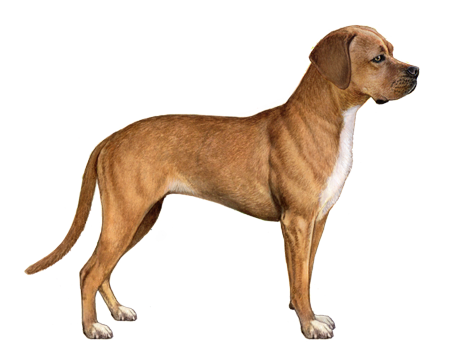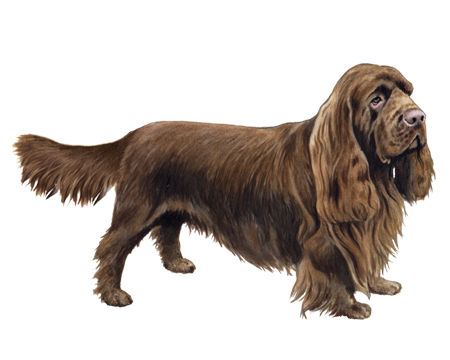
Braque d'Auvergne
Braque d'Auvergnes are natural hunters with a keen sense of smell and tireless work ethic. Kind and intelligent, these dogs also make great additions to active families.
Interested in discovering if your dog is a Braque d'Auvergne?
Check out Wisdom Panel's DNA tests.

Braque d'Auvergne Traits
General Appearance
The Braque d'Auvergne is a medium-sized pointer with a robust, sturdy physique. The breed is built to cover long distances and work the whole day in rugged terrain.
Coat and Colouring
Braques have short, shiny coats—which are always black with white markings in either a ticked or roan pattern.
Distinctive Physical Traits
Braque d'Auvergnes have oval-shaped heads, large, dark hazel eyes, and large, broad noses. Their ears sit low and back, reaching the root of their nose when pulled forward. Braques have deep chests and muscular legs, and they carry their high-set tails horizontally.
Braque d'Auvergne Temperament
These good-natured, intelligent dogs serve well as both hunting partners and family pets. They're affectionate pups that love attention and live to make their people happy. They also typically get along well with other dogs.


Braque d'Auvergne History
The Braque d'Auvergne originated in the Cantal region of southern France more than two centuries ago. Experts believe it's one of the oldest pointer breeds in the world.
As the story goes, Knights of Malta brought dogs with them when they relocated to the Auvergne region of France after Napoleon captured Malta and dissolved the knight's order. As they continued their hunting tradition in this new location, the knights developed Braques to be strong and tireless hunters.
Like many breeds, the Braque d'Auvergne faced extinction after World War II. Fortunately, Andre De Tournay found 20 dogs and used them as the foundation stock to save the breed.
Until featured in a 1987 issue of **Gun Dog Magazine
Braque d'Auvergne Care
Nutrition
Braque d'Auvergnes thrive on a high-quality diet formulated for their life stage (e.g., puppy, adult, senior). To help them maintain a healthy weight, keep an eye on their food intake and measure their portions to avoid overfeeding. As a guideline, treats should make up no more than 10% of a dog's daily calories.
Because of their deep chests, these dogs are at a greater risk of bloat (also known as twisted stomach). To help prevent bloat, break your dog's food up into several meals a day, and use a food bowl designed to slow their eating. Also, avoid feeding immediately before or after any kind of vigorous activity. These are just a few ways you can help prevent this life-threatening condition. Consult your veterinarian about other methods, including surgical options.
Grooming
The Braque's short coat is relatively easy to maintain. Weekly brushing to remove loose fur and the occasional bath are usually sufficient to keep it looking its best. Nail trims are also a critical part of any grooming routine. Overgrown nails can cause pain and potentially lead to problems running or walking.
Lastly, good dental hygiene will support your pup's overall health (as well as their winning smile). So, in addition to professional cleanings, establish an at-home dental care program that includes regular teeth brushing and veterinarian-recommended dental chews.
Exercise
A tireless nature is one of this breed's most appealing characteristics. Braques can hunt all day! But when they're not hunting, they need plenty of outlets to burn energy. Brisk walks, runs, hikes, and backyard games are all outdoor activities that these dogs enjoy. And if introduced to water at a young age, they make excellent swimmers. Their athletic abilities also make them well-suited for dog sports—such as agility, rally, tracking, and flyball.
Training
Braques are obedient, eager-to-please dogs and thus typically easy to train. They respond best to positive reinforcement using treats or favorite toys as rewards. In addition to obedience and field training, early socialization will help your pup develop into a well-mannered adult dog.
Breed Group
Sporting
The sporting group breeds are incredibly diverse in personality and appearance, but can be characterized as very sturdy. They were developed to work closely with people and in general have a very responsive nature and high intelligence.




